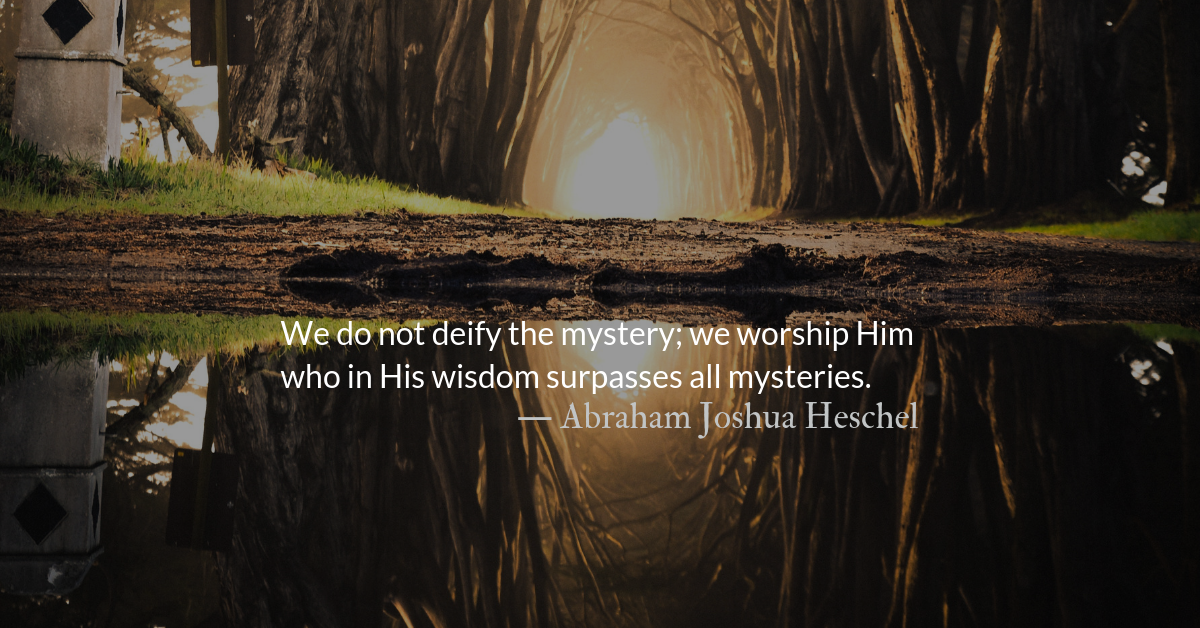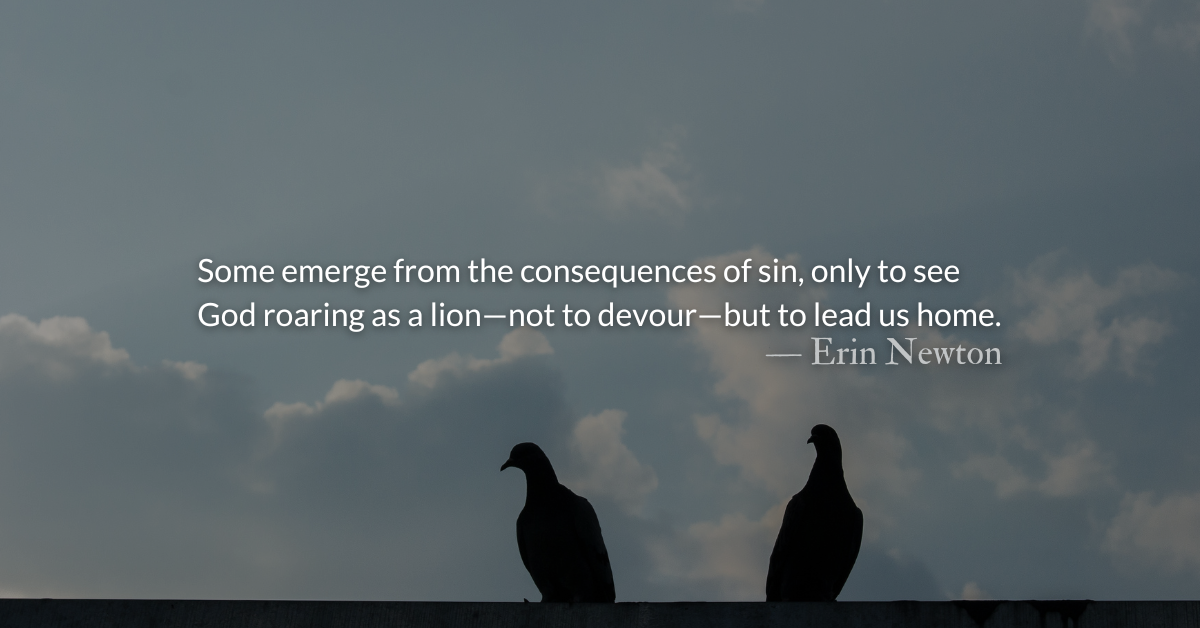Psalm 75.2-3
At the set time that I appoint I will judge with equity. When the earth totters, and all its inhabitants, it is I who keep steady its pillars.
From John:
In the next couple of days we will look back at some posts highlighting Jewish scholar, Abraham Joshua Heschel. Heschel was instrumental in the efforts of the civil rights movement, working alongside Christian pastors who stood for the cause and is an important theological voice for Christians to be familiar with.
Reflection: Beyond the Mystery is Mercy
By Abraham Joshua Heschel (1907-1972)
The sense of the ineffable, the awareness of the grandeur and mystery of living, is shared by all men, and it is in the depth of such awareness that acts and thoughts of religion are full of meaning. The ideas of religion are an answer, when the mystery is a problem. When brought to the level of utilitarian thinking, when their meaning is taken literally as solutions to scientific problems, they are bound to be meaningless.
God’s power is not arbitrary. What is mysterious to us is eternally meaningful as seen by God. There are three attitudes toward [this] mystery: the fatalist, the positivist, and the Biblical.
To the fatalist, mystery is the supreme power controlling all reality. He believes that the world is controlled by an irrational, absolutely inscrutable and blind power that is devoid of either justice or purpose.
A tragic doom is hanging over the world, to which gods and men alike are subject, and the only attitude one may take is that of resignation. It is a view that is found in various forms and degrees in nearly all pagan religions, in many modern philosophies of history (history as a cycle of becoming and decay), as well as in popular thinking.
The positivist has a matter-of-fact orientation. To him the mystery does not exist; what is regarded as such is simply that which we do not know yet, but shall be able to explain some day. The logical positivist maintains that all assertions about the nature of reality or about a realm of values transcending the familiar world are meaningless and that, on the other hand, all meaningful questions are in principle answerable.
The awareness of mystery was common to all men of antiquity. It was the beginning of a new era when man was told that the mystery is not the ultimate; that not a demonic, blind force but a God of righteousness rules the world.
The theology of fate knows only a one-sided dependence upon the ultimate power. That power has neither concern for man nor need of him. History runs its course as a monologue. To Jewish religion, on the other hand, history is determined by the covenant: God is in need of man. The ultimate is not a law but a judge, not a power but a father.
*Excerpted and abridged from God in Search of Man by Abraham Joshua Heschel.
Prayer: A Reading
Jesus taught us, saying: “So always treat others as you like them to treat you; that is the Law and the Prophets.” — Matthew 7.12
– From The Divine Hours: Prayers for Springtime by Phyllis Tickle.
Today’s Readings
Numbers 31 (Listen – 5:52)
Psalm 75-76 (Listen – 2:33)
Thank You!
Thank you for reading and a huge thank you to those who donate to our ministry, keeping The Park Forum ad-free and enabling us to continue to produce fresh content. Every year our donors help us produce over 100,000 words of free devotionals. Follow this link to support our readers.
Read more about Saved by Mercy
But one must face the fact: the power of Evil in the world is not finally resistible by incarnate creatures, however ‘good’; and the Writer of the Story is not one of us.
Read more about Prayer for Older Brothers
One son was humiliated by his own scandalous behavior.
One son was humiliated by his father’s scandalous grace.






